Norwich to Tilbury pylons cheaper overground - National Grid
- Published
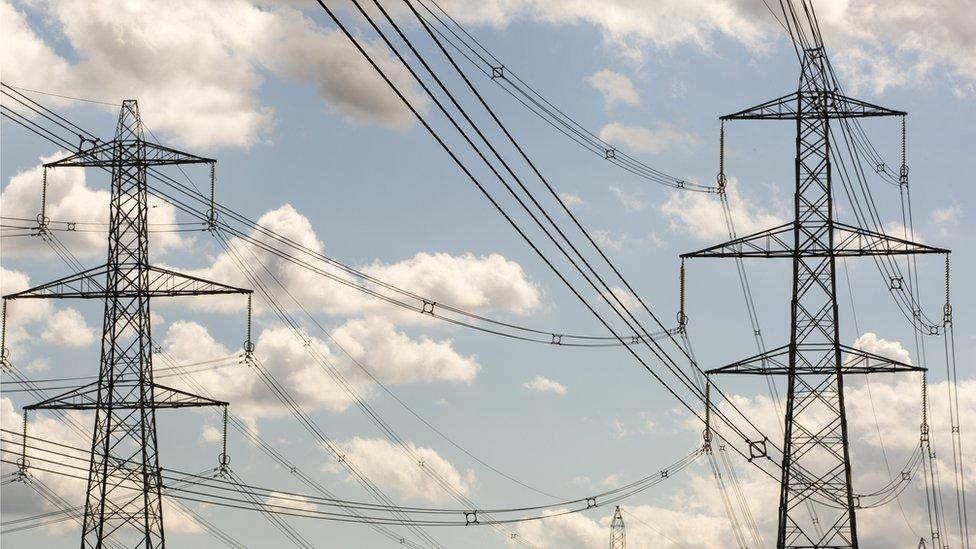
National Grid wants to erect pylons across three counties to bring offshore electricity onshore.
National Grid said its plans to build a chain of pylons across East Anglia to carry offshore power were technically necessary and the cheapest option.
Simon Pepper told a Norfolk County Council scrutiny committee "every penny we spend appears on consumers' bills".
"Offshore solutions are more expensive, undergrounding is even more expensive. This is about offering value for money for consumers," he said.
Critics said it was resorting to outdated 1950s technology.
National Grid wants to erect pylons along a 112-mile (180km) route.
It would run from Norfolk to Tilbury in Essex, with overhead cables carrying electricity from offshore wind farms.
Mr Pepper, National Grid's senior project manager, told the committee the existing network of power lines was not big enough to handle the amount of electricity which would be generated.
Neil Carter, the firm's technical lead on the project, said laying cables underground, or along the coast on the sea bed, would involve a lot more disruption and take the cost of the project to £2bn-£4bn, compared to £793m for the pylon project.
"Our obligations are to provide the most economic and efficient solution to consumers," he said.
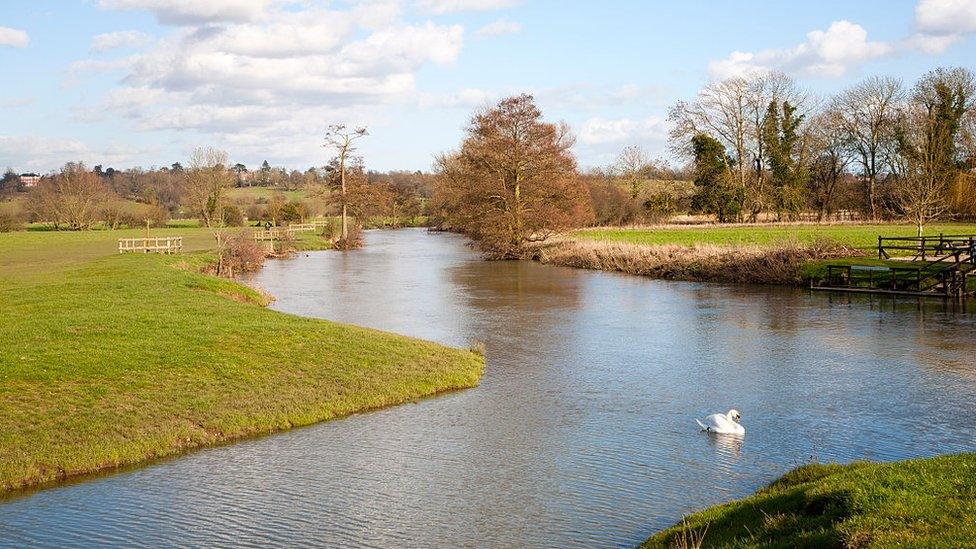
National Grid has proposed to run the cables underground through the Dedham Vale area of outstanding natural beauty
But Conservative councillor Barry Duffin said more pylons would lead to the "annihilation of the countryside".
Another Tory, Keith Kiddie, pointed out that with an existing line of pylons running nearby, the town of Diss would be surrounded.
"This is a 2022 problem and we're being told the answer is 1950s technology," he said.
National Grid said it understood people's concerns and would try to reduce the impact as much as possible.
After reviewing responses to its consultations it would consider making changes before launching another consultation next year.
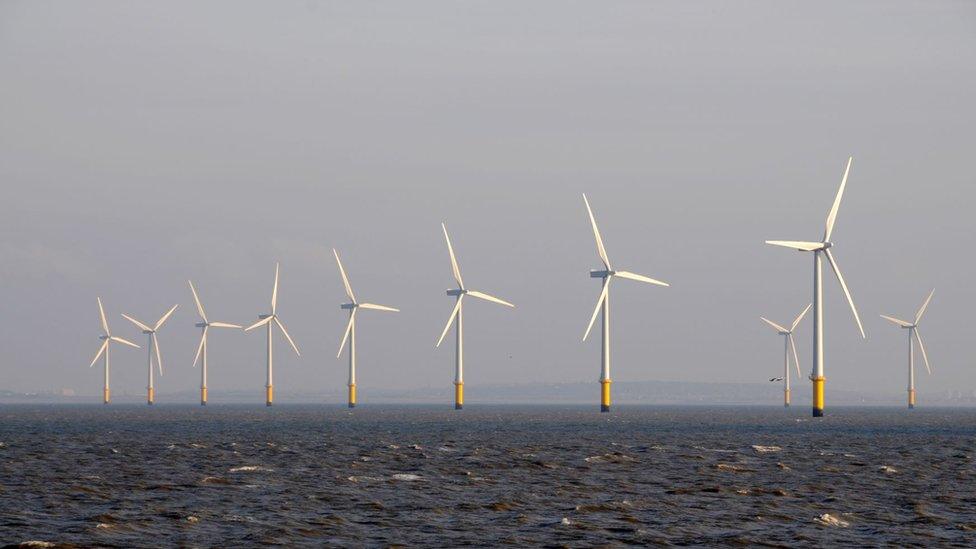
A consultation on the plans is running until 16 June
The pylons are part of the East Anglia Green Energy Enablement, external project - a proposed 400kV electricity transmission line between Norwich and a new Bramford substation near Ipswich, and then on to Tilbury on the Thames estuary.
National Grid has already agreed to run part of the cabling route underground - through the Dedham Vale area of outstanding natural beauty on the Essex/Suffolk border.
Three Essex councils - the county council, Braintree District and Brentwood Borough - have already indicated their opposition to the new power lines, along with some Suffolk councils.
National Grid said it would be submitting its application to the Planning Inspectorate in late 2024.

Find BBC News: East of England on Facebook, external, Instagram, external and Twitter, external. If you have a story suggestion email eastofenglandnews@bbc.co.uk, external
Related topics
- Published13 June 2022

- Published8 June 2022
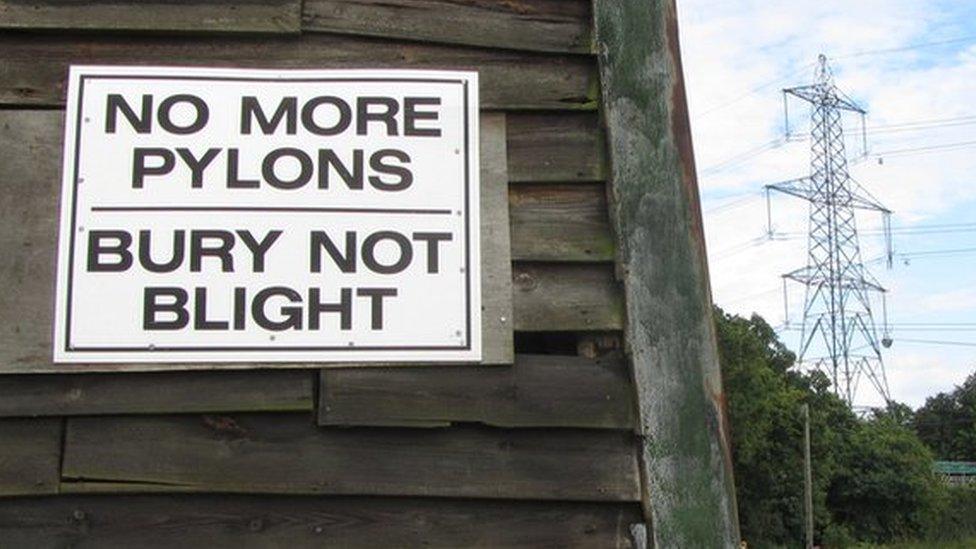
- Published6 June 2022
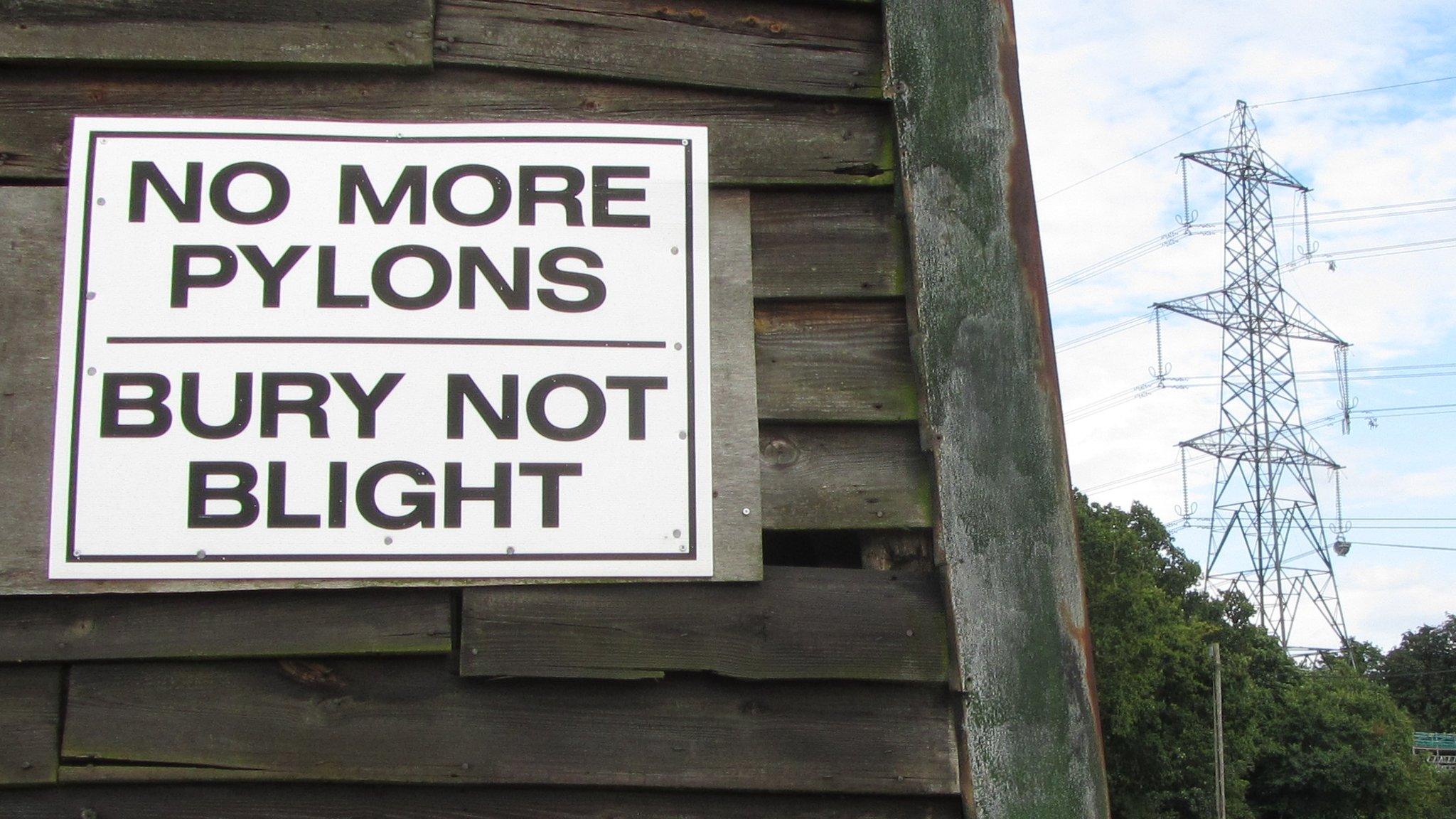
- Published1 June 2022

- Published10 May 2022

- Published22 April 2022
